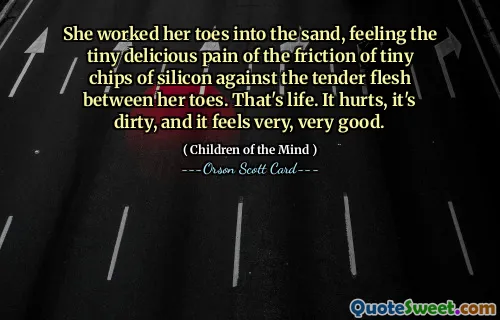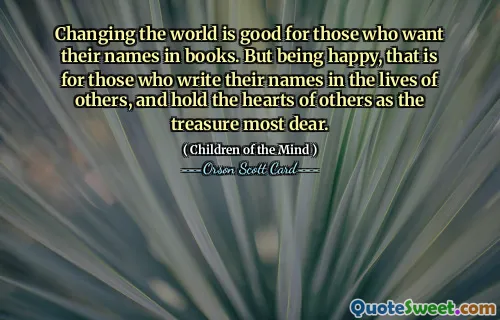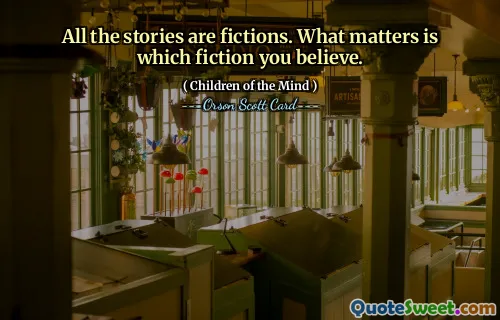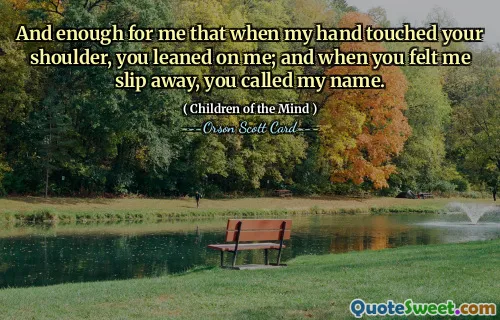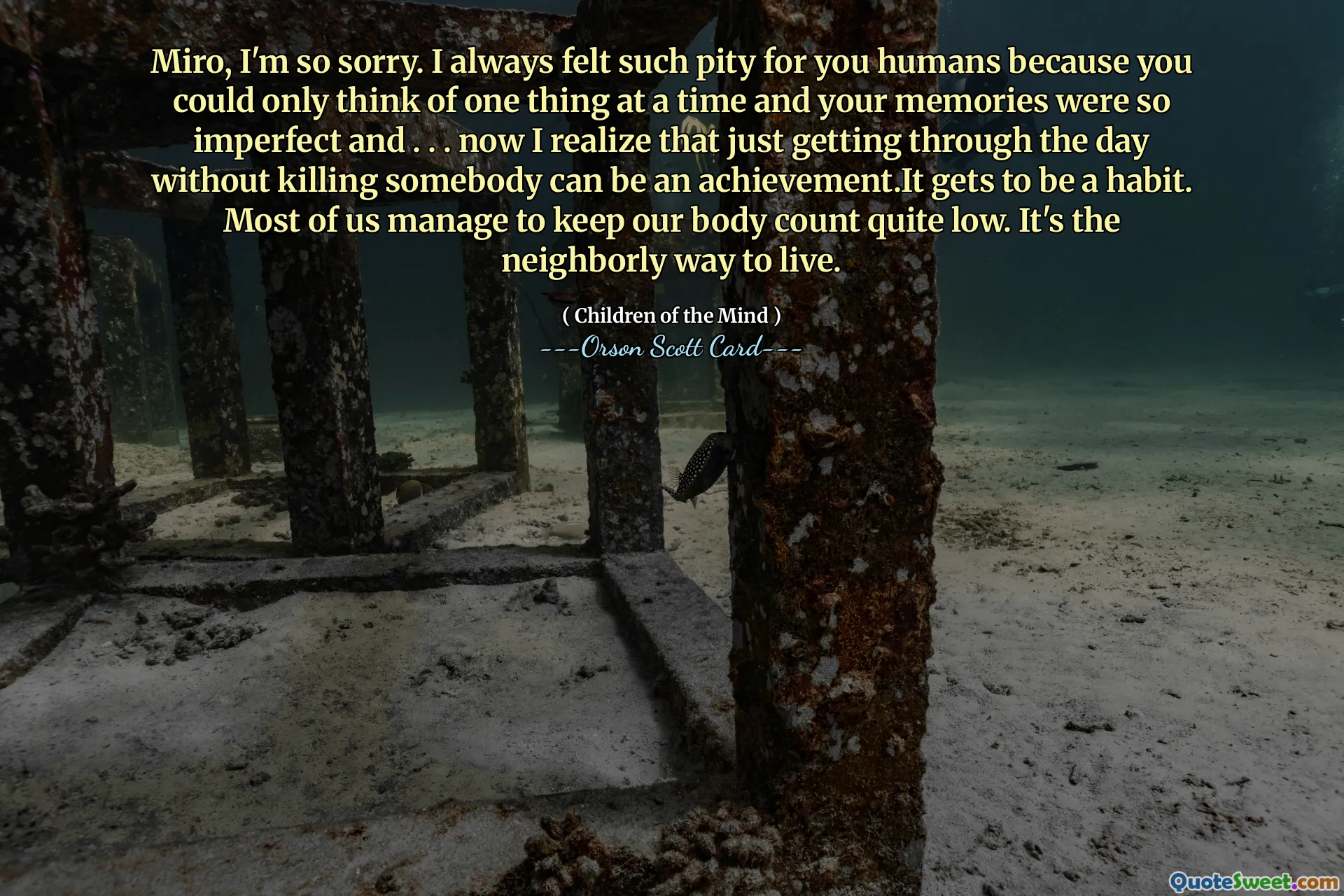
Miro, I'm so sorry. I always felt such pity for you humans because you could only think of one thing at a time and your memories were so imperfect and . . . now I realize that just getting through the day without killing somebody can be an achievement.It gets to be a habit. Most of us manage to keep our body count quite low. It's the neighborly way to live.
In the book "Children of the Mind" by Orson Scott Card, a character reflects on their previous misconceptions about human nature. They express regret for their past feelings of pity towards humans, who can only focus on one thought at a time and possess unreliable memories. The character realizes that simply navigating daily life without causing harm can be a significant achievement.
This shift in perspective highlights the complexities of human existence, where maintaining peace and avoiding violence can become habitual. The narrative suggests that restraint and the effort to coexist peacefully with others is a shared value, emphasizing the importance of living harmoniously within society.
